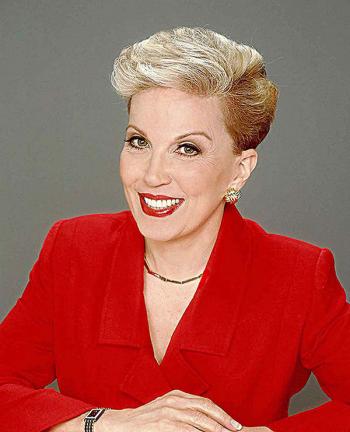
Medications kept under lock and key ensure kids’ safety
DEAR ABBY: You missed the chance to communicate a life-or-death message to your readers when you answered a letter from an “Ohio Grandma” (July 14).
Your reply understated the importance of storing medications properly and safely. What if the grandmother had placed a loaded gun on the desk instead of medications? Both can produce just as deadly a result.
And why didn’t those meds have safety lids? Putting them in a suitcase is not enough. They should be stored out of reach, preferably secured with a safety lock. Or better yet, the parents should be told you have dangerous substances with you — and asked where you can store them.
MOM OF A TODDLER IN NEW JERSEY
DEAR MOM: I was scolded for not placing more emphasis on the safety issue. However, the question I was asked was, “Are we obligated to help with more of the medical expenses (for the ER visit) because we have already helped (contributed several hundred dollars) and I don’t think it’s our job to teach our grandchild boundaries?” So that was the issue on which I focused. Read on:
DEAR ABBY: You dropped the ball. No 3-year-old will respect a closed door all of the time. Grandma and Grandpa are responsible for the safe-keeping of their meds while in the child’s and even the grandparents’ home. Bottles that rattle and pretty colors in a bottle that look like candy will attract any little kid. Grandma and Grandpa should be happy they aren’t helping to pay for a funeral instead of an ER visit. Here are the “rules”:
1. All medications should be in kid-proof containers.
2. All medications and OTC drugs should be kept out of a curious child’s climbing area.
3. Poison Control numbers should be posted on the fridge.
4. Use the original container (not one of those daily dosage containers) and know how many pills are in it. Be sure you know the name, strength and dosage for each medication. Just telling the hospital that it’s for “blood pressure” doesn’t tell them what it is or how to treat an overdose.
5. Never tell the kids that medication is candy!
6. You are the adult. Don’t expect any child — or teen — to respect your private property when it comes to medication.
MESQUITE, TEXAS, GRANDMA
DEAR ABBY: “Ohio Grandma’s” story of an emergency room visit for suspected medication poisoning is all too common. In 2011, 67,700 toddlers were seen for accidental medication exposure. Of these, 12,390 required hospitalization. Children 13 to 24 months of age accounted for 68 percent of these visits. In ER visits where information was obtained, 38 percent involved grandparents’ medications, 31 percent the mother’s medications, 12 percent a sibling’s, 8 percent the father’s and 5 percent an aunt’s or uncle’s medication.
Family members must take precautions to keep their meds out of children’s hands. I keep mine under lock and key with the key in my possession whenever I visit my grandchildren.
While I agree with you that children should be taught boundaries and to respect the possessions of others, I believe we have a responsibility to provide a safe environment, especially when we are visiting or when children are visiting us. The consequences of failing to do that can be tragic.
PEDIATRICIAN AND GRANDMOTHER IN MAINE
***
Good advice for everyone — teens to seniors — is in “The Anger in All of Us and How to Deal With It.” To order, send your name and mailing address, plus check or money order for $7 to: Dear Abby, Anger Booklet, P.O. Box 447, Mount Morris, IL 61054-0447.
- Log in to post comments
